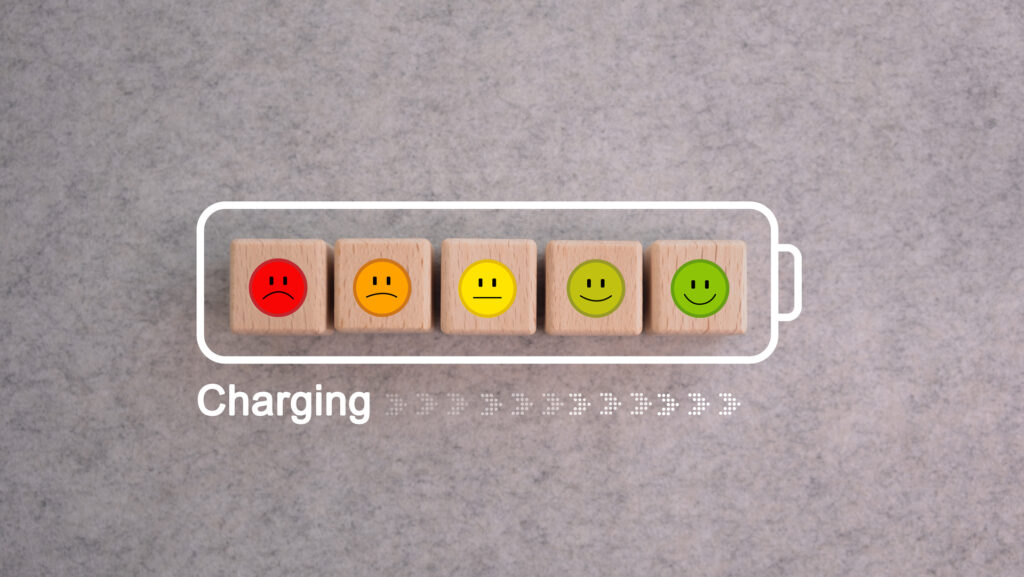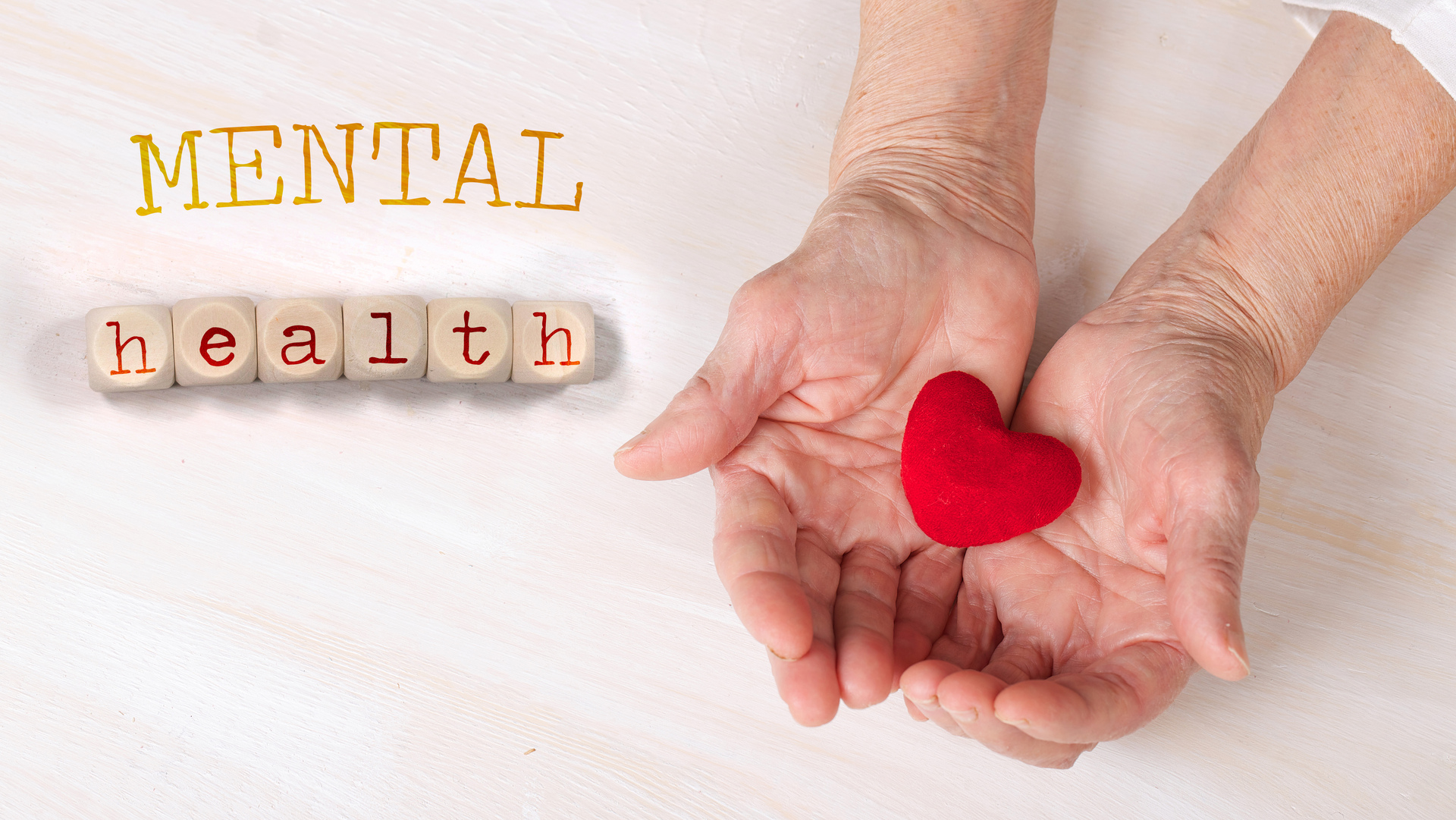Young people mental health is very important. They face unique challenges such as academic pressure, social media, and identity exploration. Encouraging open communication, offering a supportive environment, promoting self-care practices, and seeking professional assistance are essential ways to help them cope and care for themselves. However, when detected, early intervention can help achieve better long-term results.

How Mentally Healthy Are Young People Today?
- Statistics and the current mental health trend.
- Increase in mental health diseases in youth.
- Reasons for difficulties with mental health:
- Social media influence.
- Academic pressures.
- Family dynamics.
- Interactions and relations with peers and being bullied.
Young people mental health Why Matters
- Mentally unhealthy physical and emotional signs.
- The lasting impact of mental health conditions going untreated.
- The impact of mental health on education, employment, and relationships.
- Examples of Case Studies (clear, either actual or fictitious) that show the effect.
Why the Future of Mental Health is with Young People
- Youth as Future Leaders.
- How early intervention and prevention can be a game changer.
- The need to invest in mental health at an early stage to create a more productive society.
- Identifying the influence of technology and social transition on mental health methods.
The Importance of Education in Mental Health Awareness
- There is a need for mental health education in schools and universities.
- What Future Learn Does in Global Mindfulness Training.
Platforms & Courses for Studying About Mental Health Online:
- Future-based mental health courses for youth.
- Other types of awareness programs that combat stigma.
- Resource for Young People Mental Health Courses from Future Learn
- Future Learn is an online learning platform. Here is an overview of what is offered by the e-portal.
- Advantages of registering for mental health courses through Future Learn:
- Allows flexibility and accessibility.
- Content is driven by depth and authority over subject matter.
- So, that will be the support and interaction of the community.
- Tailored courses for the youth on mental health, wellbeing, and resilience.
- Student testimonials and success stories on how these courses have helped them.
Beating the stigma why education is the key to stopping the Stigma against mental health
- The stigma attached to mental health in society.
- Why we need to normalize talking about mental health.
- What Drives Conversations in Future Learn Courses
- Strategies for utilizing social media and online education to decrease stigma.
Building Up Skills for Emotional Resilience What Young People Can Do
- Understanding emotional resilience and its significance.
- Future Learn Mental Health Courses Key Skills Taught:
- Coping mechanisms.
- Stress management techniques.
- Mindfulness and meditation.
- Emotional regulation.
- Teaching How to Build Resilience to Resist Life Challenges.
Why Peer Support is Crucial for Mental Health
- Peer-to-peer support and its impact on mental health.
- Helping Each Other Get Through Mental Health Challenges As Young People.
- Sample peer support landscapes, online or in person groups.
- Community based courses at Future Learn & the significance behind shared experiences.
Parents and Guardians Supporting the Mental Health of Young People
- How parents can help foster mental wellness in their children.
- Indications that a youth is having difficulties with their mental health and strategies to approach them
- Parental Education and Mental Health Awareness.
- How Future Learn courses support parents in better understanding and helping their children.
Getting Young People to Go into Mental Health Professions Career Opportunities in Mental Health
- Increasing need for mental health professionals.
- Career Options in Psychology, Counseling, Social Work, and Psychiatry.
- Essential Steps for Young People to Get into Mental Health Related Careers Through Education.
- Future Learn offers professional development courses in mental health disciplines.
Trending Towards The Future Of Mental Health
- A history of mental health services for children and adolescents.
- Mental Health Innovations New tools and approaches for effective treatment and care.
- An increase in telehealth and online therapy.
- Artificial intelligence in mental health diagnostics and care.
- Future Mental Health Trends (+what young leaders can be part of these changes).

What Governments and Societies Can Do to Help Young People’s Mental Health
- Policy changes we must pursue to meet mental health challenges for youth.
- The contribution of schools, communities, and organizations towards mental health advocacy.
- International partnerships and initiatives about the mental health of youth.
- Global instances of adequate mental health policies.
What Young People Can Do Now, Emphasizing the Importance of Their Mental Health
- Straightforward daily steps on how to care for your mental health.
- How exercise, nutrition, and sleep affect mental health.
- Creating a daily routine for self-care.
- Discussing how hobbies and activities can contribute to your mental health.
- Getting professional help when needed.
Future Learning and Making the Future of Mental Health Brighter
- Exploring the Future Learn courses and resources.
- Partnerships with mental-oriented organizations and universities.
- Future Learn helping young people take charge of their mental health pathway.
- Global mental health awareness is done inside Future Learn.
- One educating and Mobilizing Young People.
- Mental health education still matters.
- When young people take control of their mental health future with knowledge.
Yin Yoga A Means to Enhance Youth Mental Health
Mental well-being is an integral component of health, and a positive mental state has been found to improve health outcomes. However, it is also becoming an increasing health issue among young people.
Due to increasing strains from the demands of schooling, the cycle of social media, and the repercussions of contemporary conflicts such as climate change and worldwide crises, young people are confronted with an unprecedented mental health catastrophe.
This generation is craving change, and already some educational institutions, community leaders, and healthcare professionals are waking up and seeing it as a necessity to tackle these issues if we want a brighter, healthier future and indeed, we do, and this is where yoga can help (especially yin yoga).
In that context, it was not just a physical practice; this is also a mental health tool, zone in yang in yin yoga. In this sense, this light, meditative practice could be immensely beneficial, building emotional resilience and reducing stress through empowering youth to care for their mental health.
In this article, discover the mental health epidemic among youth, the creative solutions being pioneered to help them, the science supported mental health benefits of yin yoga, and how to bring it into your life.
Youth Mental Health – Current State
Never before, at least in modern history, and probably in the long history of the human species, have so many millions of young people who have a mental illness. The World Health Organization (WHO) states that around one in seven young people aged 10–19 experience a mental health disorder, in particular, anxiety, depression, and behavioural disorders.
The emergence of technology and social media as major players in a globalized society has done us no favours in this regard. Although these platforms help build relationships, they bring the dark side of cyberbullying, comparison culture, and overreliance.
According to recent studies, the most stressed demographic are high school and college students, who are noted under academic expectations, family dynamics, uncertainties about the future, and societal pressures.
These challenges were further intensified during the COVID-19 pandemic, when students were distanced from nearby friends, disrupted from a set routine, and faced greater loneliness and helplessness. While recovery from the pandemic continues, its impact remains, reminding us that solutions must include a long-term approach to mental health support.

Nevertheless, stigma is still a primary obstacle to care. Some other young people can be put off accessing services if they fear being poorly perceived, misjudged, or unable to afford the help.
Compounding the lack of supply in heads versus need is the lack of heads. The fact of the matter is that to solve this crisis, we need proactive, comprehensive solutions that will work to avert the situation and build resilience over 50 years.
Educational Institutes and Their Tryst with Mental Health
Educators are at the frontline of youth mental health. Not only do these institutions need to impart academic knowledge, but they also need to create safe environments for young minds to flourish emotionally. In countries around the world, progressive strides are being made as a response to the challenge:
Mental Health Programs
Gradually, education systems are integrating mental health awareness into their curricula. Students develop coping skills, with lessons on emotional regulation, mindfulness, and coping mechanisms teaching them how to manage stress.
The PSHE curriculum in the UK looks at mental health awareness and emotional maturity in children from primary school upwards.
On-Campus Resources
Trained counsellors, immediate access to mental health helplines, and relationships with community organizations are forming the foundation of a supportive school ecosystem. University students are also given subsidized access to online therapy platforms like BetterHelp or TalkSpace.
Training for Teachers and Parents
Early warning signs for mental distress can be recognized with early intervention, so training should be extended to teachers and parents. Initiatives such as Mental Health First Aid have trained thousands of adults to recognize and respond to signs of crisis in young people.
Encouraging Movement and Rejuvenating Techniques
Schools are adopting wellness rituals as they become more aware of the connection between the body and soul. These approaches, from meditation mornings to yoga classes in physical education, look to build permanent student habits. An exciting area of growth has been yoga in education. Even yoga practised mostly in stillness and self-awareness is becoming recognized for its particular role in youth’s mental health.

What is Yin Yoga?
Yin yoga is a more meditative style where you hold poses for a longer time—usually between 1 and 5 minutes. While more active yoga approaches focus on building and increasing muscle strength and flexibility, yin yoga primarily works with the deeper connective tissues, ligaments, fascia, and joints.
Yin Yoga is physical, but even more so, it is meditative and introspective, where real magic happens. Chinese philosophies, precisely the idea of yin and yang, inspired yin yoga – yin energy is the energy of peace and passiveness, a needed counterbalance to the yang, fast forces of our modern lives.
It is a blend of gentle movement for releasing stress, breathwork which releases tension in the body, and practices that activate the relaxation response in our nervous systems, dialling down our physical tension and emotional stress.
The Mental Health Benefits of Yin Yoga
This is not just a physical stretch; yin yoga is a flow between body and mind that heals on many levels. The following are how yin yoga affects mental health specifically for youth.
Reducing Anxiety and Stress
Studies indicate that yoga reduces cortisol (the “stress hormone”) and balances the nervous system. Deep breathing from Yin yoga’s slow, controlled poses activates the parasympathetic nervous system.
If school or social pressure has left young people feeling overwhelmed, this immediate response can offer relief by allowing them to re-establish emotional equilibrium.
Cultivating Mindfulness
This encourages participants to practice mindfulness, forcing them to enjoy their immediate surroundings without the past or future distracting their minds.
By engaging in practices such as body scanning and breath awareness, participants cultivate mindfulness, an ability that is shown to decrease symptoms of anxiety and depression. For students balancing many tasks, this exercise can help them be clear and alert.
Releasing Emotional Blockages
In Yin yoga, you hold poses for a long time, and while this may sound counterproductive for stress relief, it penetrates the connective tissues where stress and emotions accumulate.
A phenomenon that many practitioners speak about is the ability to feel a sense of release or relief after holding a pose for an extended period. This is profoundly beneficial to young people who may be struggling with unprocessed emotions or traumas.
Improving Sleep Quality
Lack of sleep is an insidious epidemic in young people. Alternatively, yin yoga can promote a state of restfulness that helps ease you into a good night of sleep, calming both mind and body; for students who have insomnia/irregular sleep cycles, doing 20-30 minutes of a routine before bedtime will help.
Encouraging Self-Love and Acceptance
Yin Yoga encourages stillness and introspection, and participants meet their thoughts non-judgmentally. Such practice can also reinforce acceptance and compassion, two of the most needed qualities during the stressful and confusing teenage and early adult life phases.
Improving Attention and Learning
A natural companion of good yoga practice is enhanced focus and attention. In yin yoga, practitioners learn to hold their focus inward, which is a transferable skill when it comes to academic and career settings! Especially college students, who must study for long hours or write exams. They need to focus better.
How Young People Can Begin to Integrate Yin Yoga into Their Lives Practical Tips
Because yin yoga is relatively easy to access and practice, it may be an appropriate intervention for youth. Here are a few actionable suggestions to help you begin:

Start with Short Sessions
10–15 minutes of short sessions can be introduced to prevent overwhelming beginners. This time can be increased gradually as long as it feels comfortable.
Organize a Quiet Ambience
The practice of yin yoga is restorative, but it is also necessary to practice it in a peaceful, low-light atmosphere. Remind your students to choose a space with no clutter at home or one of the school wellness areas.
Try a Few Guided Classes
Beginners can find helpful yin yoga classes on YouTube channels, on mobile apps such as Insight Timer, or by local group yoga instructors. Instructors can create sessions with fun themes and upbeat music for younger students.
Select Flexible Props
Simple props such as cushions, blankets, or yoga blocks can enhance cushioning between stretches, allowing users to maintain poses without injury.
Don’t Forget the Foundational Poses
This could mean Child’s Pose (Balasana), Butterfly Pose, and Supine Twist, to name a few. With less effort, the most relaxation of the body and mind occurs through these poses.
Breathe with It
Implementing yoga poses with deep diaphragmatic breathing helps increase the mental health benefits of the practice.
Partner with Schools
Schools and universities can incorporate yin yoga into their programs as part of their mental wellness programs. Having students practice could be as simple as using mindfulness techniques during lunch or after school to get students used to the practice.
Encourage Consistency
As with any practice, Yin Yoga benefits are cumulative. Regular practice only takes two to three times a week to generate tangible progress.
Integrating Approaches for Mental Health and Self-Care
Adapting to such requires grit, self-awareness, and adaptability, which young people must navigate. The use of yin yoga to address the mental health issues of the modern youth opens up channels towards balance and harmony.
A future where young learners grow, thrive, and flourish at the intersections of mind, heart, and body is a future where individual and collective flourishing accelerates.
This vision can become a reality through mindfulness, community engagement, and progressive practices like yin yoga. Whether practiced alone or with more extensive institutional strategies, these tools offer the key to managing and transforming mental health.
Importance of mental health among youth
Youth need mental health because it affects how well they manage their emotional, social and academic creations. Positive mental health enables young people to cope with stress, develop resilience, and build healthy relationships. Early intervention allows children to thrive, builds self-esteem, and leads to a healthier, more productive adult life.
<script type="application/ld+json">
{
"@context": "https://schema.org",
"@type": "Article",
"mainEntityOfPage": {
"@type": "WebPage",
"@id": "https://skyhealthnews.com/young-people-mental-health/"
},
"headline": "Young people mental health",
"description": "Young people mental health is very important. They face unique challenges such as academic pressure, social media, and identity exploration.",
"image": "https://skyhealthnews.com/wp-content/uploads/2025/01/Young-people-and-mental-health-future.jpg",
"author": {
"@type": "Person",
"name": "Farhad",
"url": "https://skyhealthnews.com/author/farhad"
},
"publisher": {
"@type": "Organization",
"name": "",
"logo": {
"@type": "ImageObject",
"url": ""
}
},
"datePublished": "2025-01-18"
}
</script>








